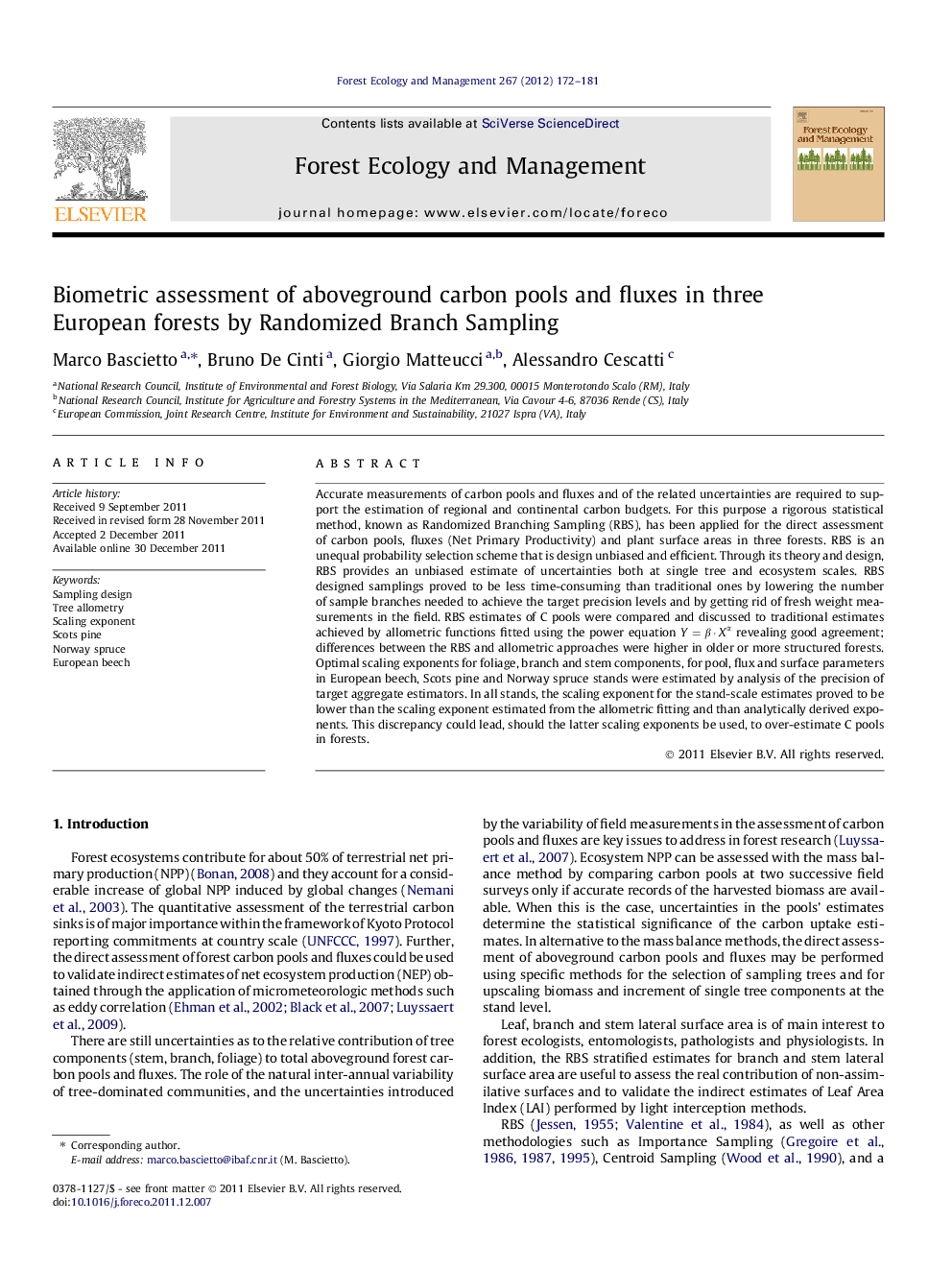| کد مقاله | کد نشریه | سال انتشار | مقاله انگلیسی | نسخه تمام متن |
|---|---|---|---|---|
| 87622 | 159258 | 2012 | 10 صفحه PDF | دانلود رایگان |

Accurate measurements of carbon pools and fluxes and of the related uncertainties are required to support the estimation of regional and continental carbon budgets. For this purpose a rigorous statistical method, known as Randomized Branching Sampling (RBS), has been applied for the direct assessment of carbon pools, fluxes (Net Primary Productivity) and plant surface areas in three forests. RBS is an unequal probability selection scheme that is design unbiased and efficient. Through its theory and design, RBS provides an unbiased estimate of uncertainties both at single tree and ecosystem scales. RBS designed samplings proved to be less time-consuming than traditional ones by lowering the number of sample branches needed to achieve the target precision levels and by getting rid of fresh weight measurements in the field. RBS estimates of C pools were compared and discussed to traditional estimates achieved by allometric functions fitted using the power equation Y=β·XαY=β·Xα revealing good agreement; differences between the RBS and allometric approaches were higher in older or more structured forests. Optimal scaling exponents for foliage, branch and stem components, for pool, flux and surface parameters in European beech, Scots pine and Norway spruce stands were estimated by analysis of the precision of target aggregate estimators. In all stands, the scaling exponent for the stand-scale estimates proved to be lower than the scaling exponent estimated from the allometric fitting and than analytically derived exponents. This discrepancy could lead, should the latter scaling exponents be used, to over-estimate C pools in forests.
► RBS is an unbiased design sampling technique recently applied to forestry field.
► Pools, fluxes and surfaces were sampled in 3 forests of contrasting age and species.
► RBS provided comparable results to traditional sampling designs.
► Scaling exponents proved to be stand specific and dependant on forest structure.
► Allocation ratios suggest a self-organisation in the flux of energy as forest ages.
Journal: Forest Ecology and Management - Volume 267, 1 March 2012, Pages 172–181